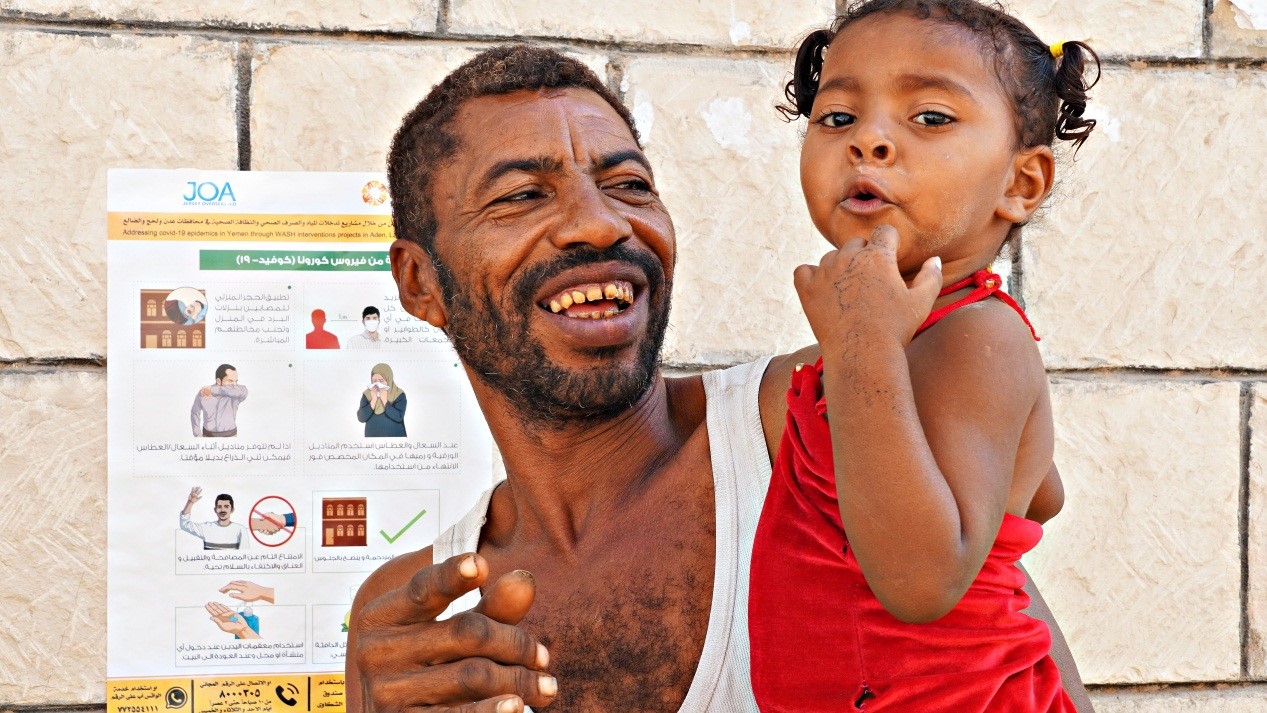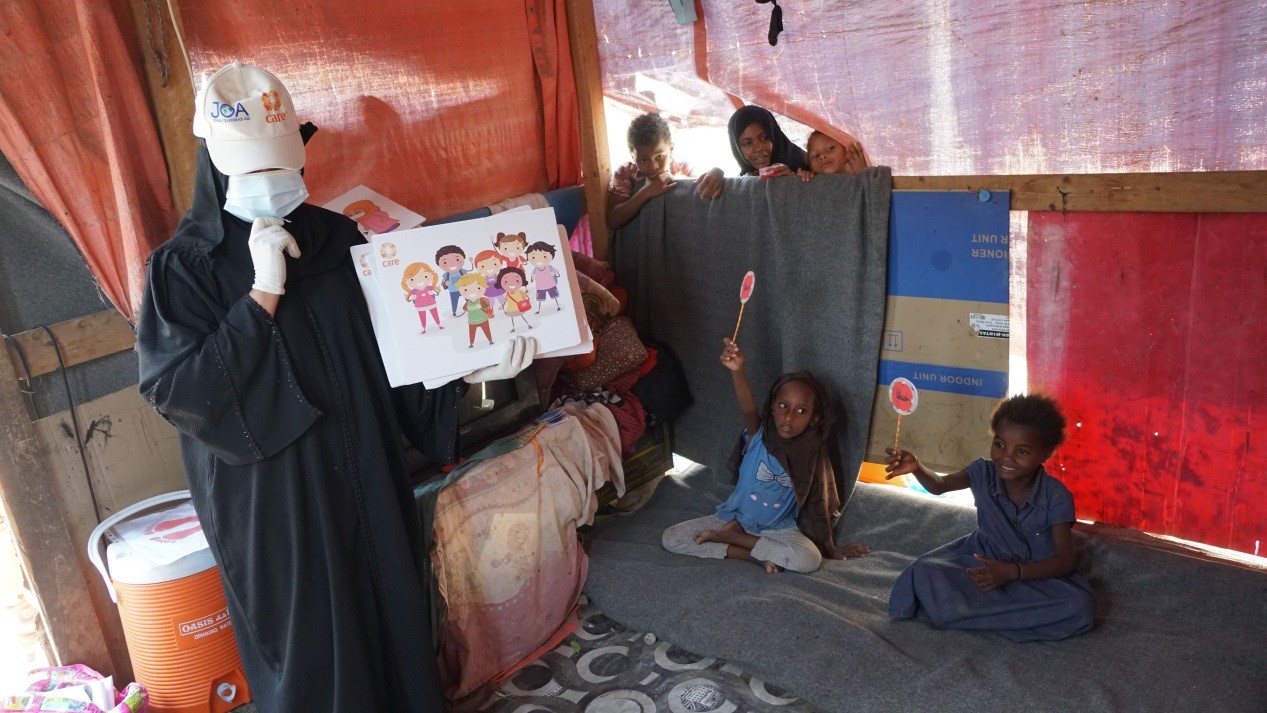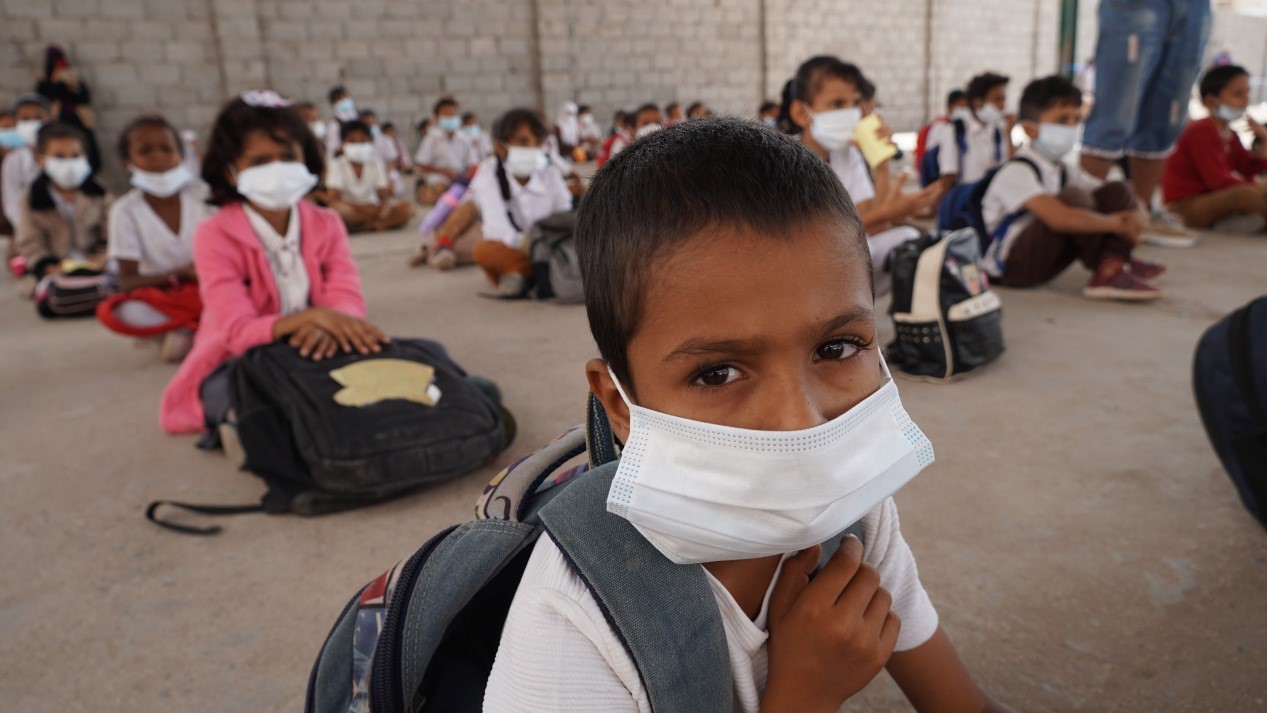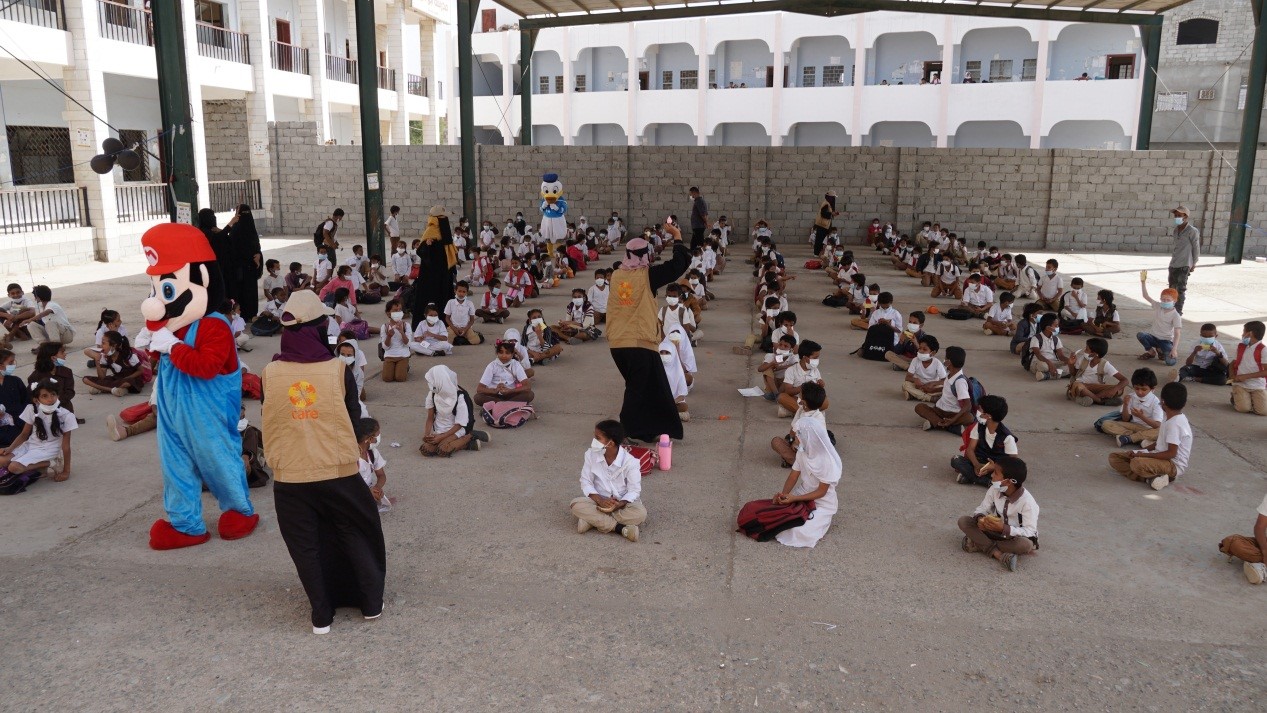“Without enough clean water for drinking, cooking and personal hygiene, it is difficult to maintain good health and fight off illnesses,” says Mohammed Musad, a 59-year-old internally displaced person (IDP) living in an IDP camp in Dar Sad district of Aden governorate. “Without proper sanitation, water supplies can become contaminated, and diseases can spread rapidly among displaced families. Even coronavirus can spread undetected here.”
The Covid-19 pandemic has been a worldwide challenge. But in worn-torn countries like Yemen, communities are more vulnerable. Having been forced to flee their homes, displaced families are exposed to a range of challenges and risks. During the Covid-19 pandemic, IDPs are especially at risk because they are unable to self-isolate and they lack access to water, sanitation and basic healthcare. For IDPs who already have difficulty accessing adequate water, sanitation, healthcare and livelihood services, the impacts of the pandemic are likely to be significant on their health and wellbeing, and its longer-term social and financial consequences mean that IDPs need more assistance than ever.
“The threat of cholera and COVID-19 looms high in IDPs camps,” says Sabrine, CARE’s Hygiene Promotion Field Officer. “The lack of adequate water and sanitation infrastructure, as well as overcrowding, make basic prevention measures such as handwashing and isolation very difficult.”



